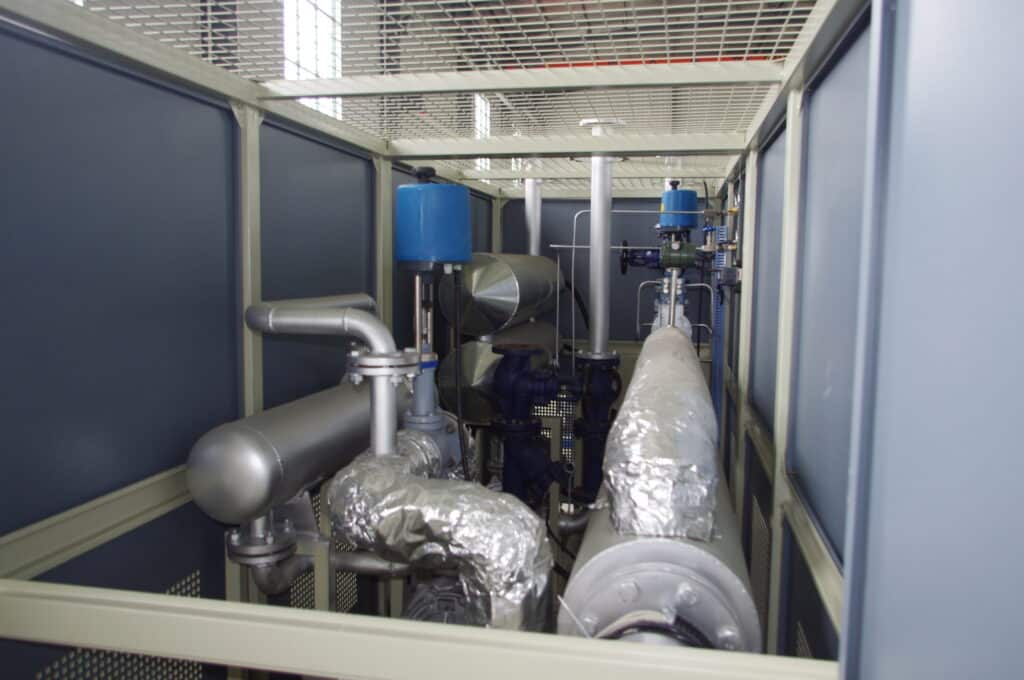Understanding Industrial Thermal Oil Boilers
Industrial thermal oil boilers play an important role in many fields, providing efficient and controlled heating solutions for a variety of industrial applications. Unlike water-based systems, these boilers utilise thermal oil to achieve higher temperatures at lower pressures, making them ideally suited to industrial applications where precise temperature control is required.

Factors affecting the price of thermal oil boilers
The price of a thermal oil boiler varies depending on several key factors:
- Capacity & Size: Boilers with greater heat output require more materials and more complex manufacturing processes, and are therefore more expensive.
- Quality of materials: Boilers made from high-grade, durable materials have a longer lifespan and higher efficiency, but at a correspondingly higher cost.
- Advanced Features: Automation, security features and remote monitoring capabilities add to the initial investment, but significantly improve operational efficiency.
- Manufacturer reputation: Products from reputable manufacturers are usually more expensive, but with more assurance of quality and after-sales support.
- Customised Requirements: Boilers that are customised for specific industrial needs are usually more expensive.
Efficiency considerations
Heat transfer oil boilers are popular because of their high efficiency and energy saving performance, the thermal efficiency can usually exceed 90%. However, the operating efficiency is affected by the following factors:
- Burner quality: High-performance burners ensure complete combustion of the fuel.
- Thermal Conductive Design: Advanced heat exchanger design reduces heat loss and ensures efficient use of energy.
- Maintenance Practices: Regular cleaning of heat transfer surfaces prevents scaling and avoids efficiency reductions of 10% or more due to scaling.
Technical Trends in Heat Transfer Oil Boilers
Modern thermal oil boilers lead technological innovation in the following areas:
- automaticAutomated control systems allow precise temperature management, reducing manual intervention and energy waste.
- sustainability: Boiler designs that support renewable fuels or alternative energy sources can help reduce your carbon footprint.
- compact design: The space-saving design facilitates installation flexibility and is particularly suitable for industrial locations where space is limited.
How to choose the right boiler for your industry's needs
The following factors should be considered when selecting an industrial heat transfer oil boiler:
- Fuel typeGas-fired boilers are characterised by high efficiency and low emissions, while oil-fired boilers are suitable for areas where gas supply is unstable.
- application requirement: Industries that require fast heating prefer oil-fired boilers, while environmentally conscious businesses may choose electric boilers.
- Customised Requirements: Evaluate the need for customised features such as enhanced safety mechanisms or specific temperature ranges.
Advantages of investing in the latest technology
Upgrading to a modern thermal oil boiler brings the following benefits:
- Reduced running costs: Advanced systems reduce fuel consumption and maintenance costs.
- Improvement of production efficiency: Reliable heat supply reduces downtime and improves industrial output.
- Compliance with environmental regulations: The new model meets stringent emission standards and helps to achieve more environmentally friendly operations.
Recommended Reading:
